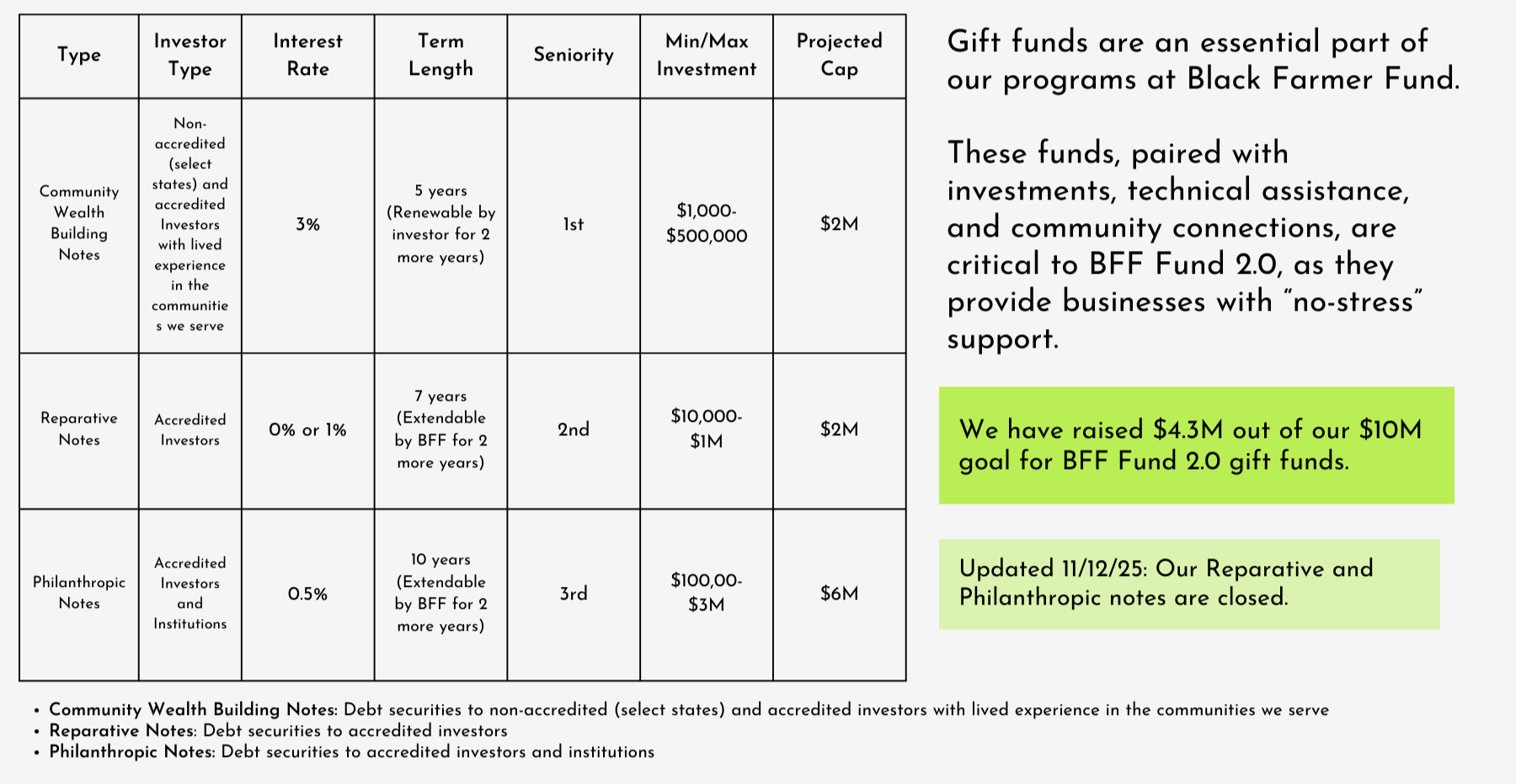

Impact
Investment Approach
Hear directly from our Investees
Trinity Farm Fresh
“The technical assistance and funding support from Black Farmer Fund (BFF) has been incredibly beneficial…Trinity Farm Farm Fresh was able to purchase and upgrade equipment [that] has reduced the labor cost as needed to improve the farm. Trinity Farm Farm Fresh was able to create a website to assist with marketing.”
—David Haughton
Black Yard Farm Collective
“As a newly developed business, having support that aids in continued growth for the business is crucial and I’m grateful to be on the receiving end of the support Black Farmer Fund has been able to extend. It has allowed the farm business to continue to flourish.”
— Ashanti Williams
Global Village Foods
“We are beyond elated to be a part of this community and cycle of uplift, which is so especially needed at this time, to hold up the torch of Harambee (Swahili for pulling together) to light the path towards economic empowerment, social justice, and racial equity in this and for future generations.”
— Mel Hall












